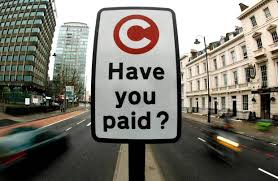
The topical and contentious issue of a congestion tax was again discussed in the SMH this week.
As major transport projects are completed over the next few years, the Baird government has left the door open to consider introducing a congestion tax, whose aim would be to charge motorists to enter the CBD to ‘prevent gridlock in the city’, according to the SMH.
Transport Minister, Andrew Constance, indicated at a recent investment banking conference that “there is nothing ruling out future governments considering it once the city is settled”. Currently, the NSW government have no plans to introduce a congestion tax, as other more pressing issues are a priority such as the $2.1 billion CBD light rail line and construction of tram lines from Circular Quay to Randwick and Kensington. All projects are expected to take more than three years.
Around the world, Governments are faced with the issue of ‘how to reduce congestion’ and find extra funding for transport projects. London introduced a congestion tax more than a decade ago to most vehicles entering the city during week days. Motorists are charged $24.50 a day to drive into the inner-city zone and research shows that the tax had the desired effect of reducing congestion.
According to streetsblog.org ‘London is enjoying improved travel choice, access, dependability and safety’. The London Underground runs 5% more train-miles on the Tube, and traveller delays are down around one third compared to a decade ago. Statistics in 2011 show that bus usage reached an all time high and bicycle trips increased too.
The idea of a congestion tax will perhaps be on the agenda sooner rather than later, as Australia lags behind other countries such as Sweden, US, and Singapore where a user-pay system has been introduced to fund expensive roadway projects and public transport systems.
The latest initiative by Australia’s largest toll-road company, Transurban, is an 8-month study in Melbourne of 1200 drivers, to gauge how they would respond to a variety of road pricing methods.
Will it be a charge per kilometre or a fixed fee per trip?
We might be discussing this agenda sooner than you think. As Australia’s state and federal governments face the truth that a gap in road funding of $6 billion due to declines in revenue from fuel tax, and other fees fail to keep pace with increased costs of road and transport infrastructure.

One Response
Charging working commuters $25 a day for going to work will result in central city businesses moving their offices to the suburbs resulting in a lost of taxes to the city and the reduction of working commuters staying in the suburbs for work, resulting in the lost of $25 a day for those working commuters not coming into the city. A double if not multiple lost of tax income to the city while still not having a way for paying for road maintenance and improvements. There are other ways to solve this problem without “throwing the baby out with the wash”.